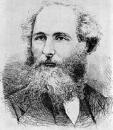| |

Home
Contact Info
Course Info
Calendar
Homework
Lecture Notes
|
|
|
|
PHY 218: Electricity and Magnetism II
Prof. S. Teitel stte@pas.rochester.edu ---- Spring 2015
Problem Set 1
Due Wednesday, February 4, in lecture
- Problem 1 [10 points]
In lecture, when we derived the following expression for the energy stored in a configuration of magnetostatic currents,
Wmag = (1/2)∫ d3r j(r)⋅A(r)
we assumed that the vector potential A was in the Coulomb gauge, i.e. that ∇⋅A = 0.
Show that in fact this expression is correct even when A is not in the Coulomb gauge.
Hint: Suppose A is in the Coulomb gauge. Construct another vector potential by taking A'(r) ≡ A(r) + ∇χ(r), where χ(r) is any scalar function. Note, this A'(r) is a good vector potential, i.e. it gives the same B = ∇×A' as does A, however A' does not in general satisfy ∇⋅A' = 0. Show that Wmag = ∫ d3r j(r)⋅A'(r) still gives the correct energy stored in the configuration.
- Problem 2 [10 points]
Suppose we have a situation where we have a known, time varying, magnetic field B(r, t), and there is no net charge, i.e. ρ(r) = 0. Write an integral expression that gives the resulting electric field E(r, t) in terms of the known B(r, t).
Hint: The relevant Maxwell Equations are: ∇⋅E(r, t) = 0 and ∇×E(r,t) = − ∂B(r,t)/∂t. Think about another situation in which you have seen a similar set of equations!
- Problem 3 [10 points]
Use the formalism of the Levi-Civita tensor εijk to derive the following vector identities:
a) ∇×(fg) = f(∇×g) − g×(∇f) where f is any scalar function and g is any vector function
b) ∇×(∇×A) = −∇2A +∇(∇⋅A)
- Problem 4 [10 points]
Griffiths 4th ed. problem 7.10
- Problem 5 [10 points]
Griffiths 4th ed. problem 7.16
- Problem 6 [10 points]
Griffiths 4th ed. problem 7.17
- Problem 7 [10 points]
Griffiths 4th ed. problem 7.22
|
|